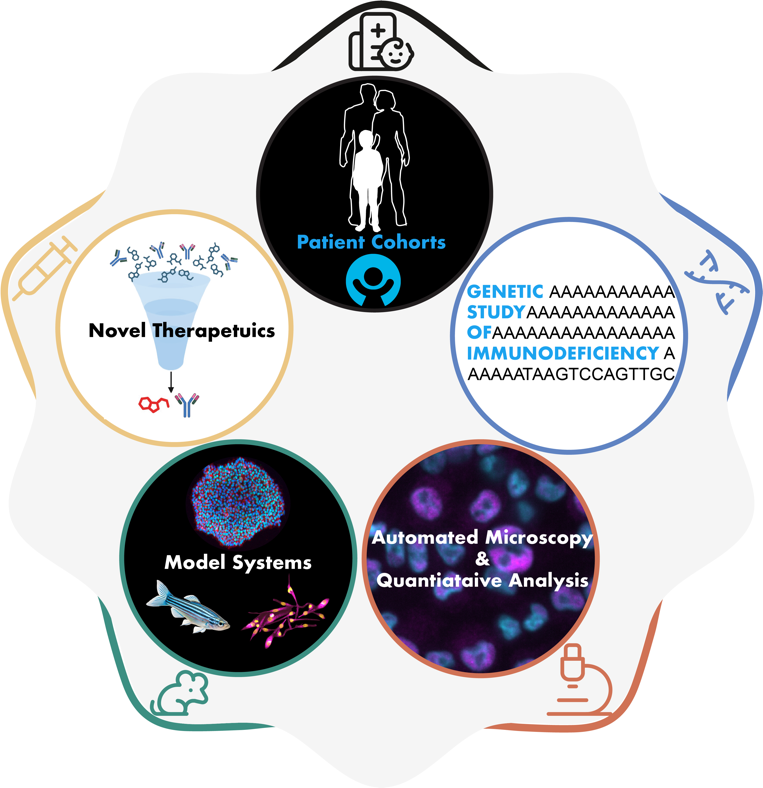Primary Immunodeficiencies (PID)
Primary Immunodeficiencies (PID), are inborn errors of immunity (IEI) in which part of the immune system is not functioning properly, often with persistent, recurrent, or fatal infections in children. IEI may present with a life-threatening multisystem inflammatory disease termed hemophagocytic lymphohistiocytosis (HLH). Despite the central role played by impaired lymphocyte cytotoxicity in HLH, target cells and macrophages are not passive bystanders1. This is especially true for a novel PID we described, that is associated with the helicase ZNFX12. In the previous phase, we successfully developed a high-throughput imaging platform to characterize ZNFX1-deficiency on the molecular and cellular level3. We will next focus on understanding and modulating macrophage activation. Macrophages can be activated by extrinsic factors such as genetic defects in cytotoxicity (dysfunctional killer), or intrinsic factors such as immune response defects (hyperactivated target). The latter can be pathogen-triggered, or it can be an autoinflammatory response. Using a plethora of in-vitro and in-vivo model systems, we aim to differentiate between the molecular signature of macrophage activation in the presence or absence of a monogenic defect in cytotoxicity and identify novel immunomodulatory molecules in the context of macrophage activation in PID.
References
- Planas R, Felber M, Vavassori S, Pachlopnik Schmid J. The hyperinflammatory spectrum: from defects in cytotoxicity to cytokine control. Front Immunol. 2023;14(April):1-19. doi:10.3389/fimmu.2023.1163316
- Vavassori S, Chou J, Faletti LE, et al, Pachlopnik Schmid J. Multisystem inflammation and susceptibility to viral infections in human ZNFX1 deficiency. J Allergy Clin Immunol. 2021;148(2):381-393. doi:10.1016/j.jaci.2021.03.045
- Häfeli J. Immune Mechanisms of a Novel Primary Immunodeficiency Associated with the RNA Sensor ZNFX1.
